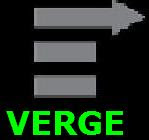We've all heard the fabled warnings of our mothers about not making faces because they might just get stuck that way. Until today I never thought those words, now pearls of wisdom, had any validity.
Over the weekend I watched "Bad Company", a spy/thriller film staring Anthony Hopkins and Chris Rock. The basic premise of the film is Chris Rock, unbeknown to him, had twin brother that was killed in the line of duty as a government agent on a high profile case. Anthony Hopkins works for the same department the twin did. The department tracks Rock down, sequesters him, then trains him to pick up where his brother left off.
During one of the scenes, Rock is suddenly abducted in his sleep by agents and brought to an interrogation room as a part of his training. After a short bit of dialogue about the ordeal, Hopkins explains to Rock how the brain shuts down during times of fear/panic. As a young entrepreneur, those words stuck with me. I asked myself "if fear impairs my brain function during times of anxiety, how is it effecting my ability to think clearly about my business?" I would challenge you to consider the same.
Fear is one of our most basic and vital survival tactics. What we consider as our "fears" is made possible by the amygdala, a small almond shaped organ near the base of the brain. It's primary role is to process and store our emotional reactions. In other words, when we are faced with situations that increase our anxiety the amygdala produces an involuntarily compulsory reaction which tells us to run, fight, or freeze. Consequently these reactions may not be beneficial to dilemma at hand, but it's what we've unknowing conditioned our brains to do. Over time, the reactions become hard-wired into our psyche. This process is referred to as fear conditioning.
What am I getting at?
Our business ventures present us with stressful situations on a daily basis. One day it's the need for process innovations or increased efficiency of operations, the next day it's the need to diversify our product line, while the next day we could be faced with the decision to use twitter to reduce the cost and time of our marketing strategy. During these times of excessive anxiety, we need to take a second to consider our options, rather then allowing ourselves to simply react. Consider prototyping your way through the problem with quick sketches, mind maps, analogies, and metaphors. Another sure fire way to hedge off detrimental compulsory reactions is to frequently discuss your business with a trusted colleague or friend. Their perspectives can help you approach things in a more rational way. Remember, how you think is what will be!
Over the weekend I watched "Bad Company", a spy/thriller film staring Anthony Hopkins and Chris Rock. The basic premise of the film is Chris Rock, unbeknown to him, had twin brother that was killed in the line of duty as a government agent on a high profile case. Anthony Hopkins works for the same department the twin did. The department tracks Rock down, sequesters him, then trains him to pick up where his brother left off.
During one of the scenes, Rock is suddenly abducted in his sleep by agents and brought to an interrogation room as a part of his training. After a short bit of dialogue about the ordeal, Hopkins explains to Rock how the brain shuts down during times of fear/panic. As a young entrepreneur, those words stuck with me. I asked myself "if fear impairs my brain function during times of anxiety, how is it effecting my ability to think clearly about my business?" I would challenge you to consider the same.
Fear is one of our most basic and vital survival tactics. What we consider as our "fears" is made possible by the amygdala, a small almond shaped organ near the base of the brain. It's primary role is to process and store our emotional reactions. In other words, when we are faced with situations that increase our anxiety the amygdala produces an involuntarily compulsory reaction which tells us to run, fight, or freeze. Consequently these reactions may not be beneficial to dilemma at hand, but it's what we've unknowing conditioned our brains to do. Over time, the reactions become hard-wired into our psyche. This process is referred to as fear conditioning.
What am I getting at?
Our business ventures present us with stressful situations on a daily basis. One day it's the need for process innovations or increased efficiency of operations, the next day it's the need to diversify our product line, while the next day we could be faced with the decision to use twitter to reduce the cost and time of our marketing strategy. During these times of excessive anxiety, we need to take a second to consider our options, rather then allowing ourselves to simply react. Consider prototyping your way through the problem with quick sketches, mind maps, analogies, and metaphors. Another sure fire way to hedge off detrimental compulsory reactions is to frequently discuss your business with a trusted colleague or friend. Their perspectives can help you approach things in a more rational way. Remember, how you think is what will be!

No comments:
Post a Comment